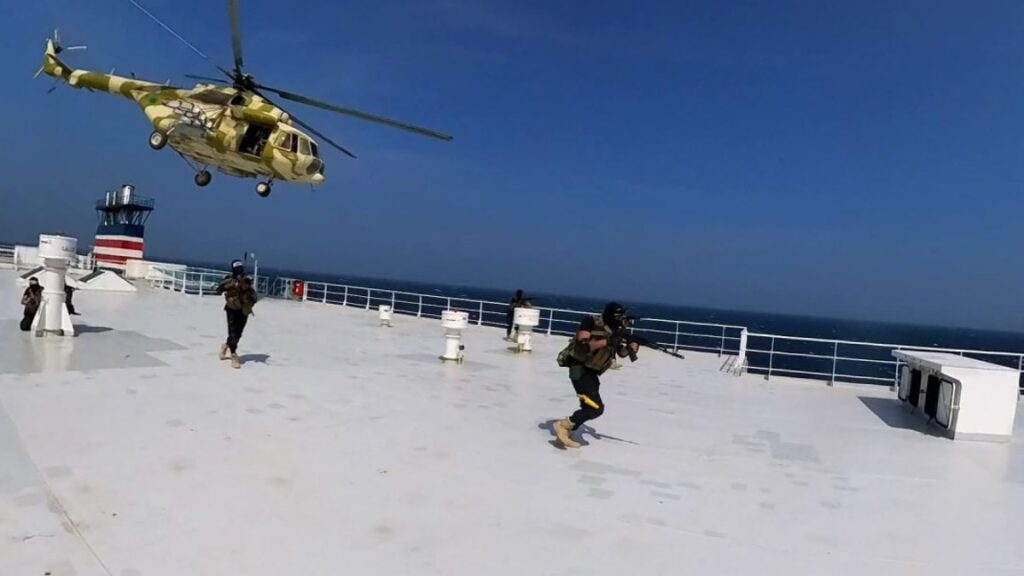Maersk – the second largest container company in the world – expected that navigation in the Bab al-Mandab Strait and the Red Sea will continue to be disrupted for months due to the increasing security risks and the threats of the Yemeni Houthi group to target ships linked to Israel, in solidarity with the Palestinians in the Gaza Strip who have been subjected to continuous assault for more than 7 weeks left more than 20 thousand martyrs and more than 52 wounded.
Bloomberg News Agency reported that the company, based in Cunebagen, published a statement yesterday, Friday, showing that 15 container shipping lines between Asia and Europe were damaged, in addition to those coming from the East Coast of the United States to the Middle East.
The agency quoted the statement as saying that in light of the chaos in the Red Sea, shipping and energy companies have changed the routes of their ships since the beginning of last week in order to avoid attacks launched by the Houthis on ships in the Red Sea, which leads to prolonging the travel times of commercial ships and energy tankers.
The American shipping company Flexport expects that about 180 cargo ships have changed their destinations away from the Bab al-Mandab Strait, diverting their route around Africa, or have stopped awaiting instructions from the companies operating them.
The Derori Global Container Price Index showed that the cost of transporting goods in a 40-foot container from Asia to Northern Europe jumped by 16% over the past week.
While the cost of transportation increased by 41% this December, which applies to fuel shipping bills, with a sailing period that may extend for an additional two weeks, by taking the Cape of Good Hope route.
Additional costs and delays pose risks to the global economy, at a time when inflation is beginning to slow.
Bab al-Mandab is an inevitable sea route for any ship seeking to reach the Egyptian Suez Canal, which shortens the journey between Asia and Europe. Avoiding that means sailing thousands of miles around Africa.
Increased shipping costs
Yesterday, the German shipping company Hapag-Lloyd announced additional fees on the goods it transports to and from the Middle East, thus joining its competitors, Danish Maersk and French CMA-CGM, which took this step earlier.
On November 19, the Houthi group announced the seizure of the “Galaxy Leader” cargo ship, owned by an Israeli businessman, in the Red Sea and taking it to the Yemeni coast.
The Houthi group has vowed on more than one occasion to target ships owned or operated by Israeli companies, in solidarity with Palestine, calling on countries to withdraw their citizens working on the crews of these ships.
It is noteworthy that the United States announced, through its Secretary of Defense, Lloyd Austin, last Tuesday the formation of a multinational coalition, in which Britain, Canada, France, Italy, the Netherlands, Norway, Bahrain, Seychelles, and Spain participate, through joint patrols in the southern Red Sea and the Gulf of Aden, as part of what was called Operation “Prosperity Guardian.”
The Pentagon also said Thursday that more than 20 countries in total have agreed to participate in the new US-led coalition to protect trade movement in the Red Sea.
The Houthi group also responded that this coalition will not stop its operations in the Red Sea, which aim to support the Palestinian people in confronting the Israeli aggression on Gaza, and “are neither a show of force nor a challenge to anyone,” according to the group’s spokesman, Muhammad Abdel Salam.

